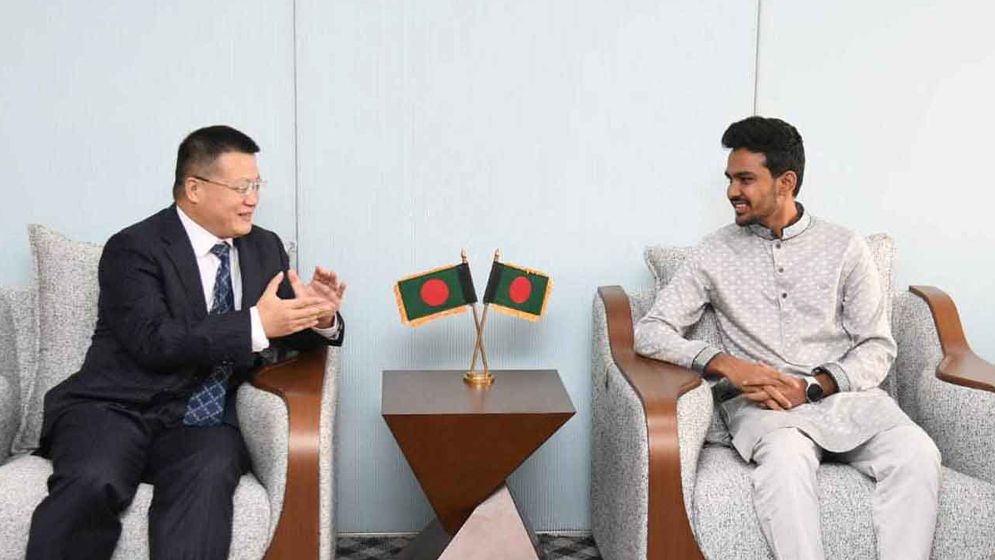In a landmark move toward sustainable development and environmental innovation, China is stepping forward to help Bangladesh turn urban waste into clean energy.
China takes a powerful step in waste-to-energy in Bangladesh by launching a 42.5MW plant turning waste-to-waste into clean power boosting sustainability and bilateral ties. This collaboration signals not only a deepening of diplomatic and economic ties between the two nations but also a vital leap in Bangladesh’s green transformation.
A Vision Becomes Reality: First Waste-to-Energy Power Plant in Bangladesh
The Dhaka North City Corporation (DNCC), in partnership with China’s state-owned China Machinery Engineering Corporation (CMEC), is set to build Bangladesh’s first waste-to-energy power plant. The site has been selected in the Aminbazar area of Dhaka, where the facility is expected to play a critical role in urban waste management and clean energy generation.
The initiative took a significant step forward following a diplomatic meeting between Asif Mahmud Sajeeb Bhuiyan, the Advisor to Bangladesh’s Ministry of Youth and Sports and the Ministry of Local Government, and Chinese Ambassador to Bangladesh, Yao Wen. During the meeting, the ambassador reaffirmed China’s strong commitment to this green energy initiative.
Key Features of the Project:
-
Electricity Generation Capacity: 42.5 Megawatts
-
Daily Waste Requirement: 3,000 Metric Tons
-
Total Project Cost: Approximately BDT 15,325 Crore
-
Contract Duration: 25 years
-
Electricity Purchase Rate: Tk 18.295 per kilowatt
-
Land Allocation: 30 acres by DNCC
DNCC has committed to supplying the daily waste needed for operation. If the waste supply falls short, DNCC will be required to pay compensation of Tk 1,000 per metric ton of shortfall—underscoring the project’s critical dependence on consistent waste supply.
The power plant is scheduled to begin electricity production by 2026, marking a crucial milestone for the country. If successful, the government plans to replicate similar waste-to-energy initiatives across all city corporations and municipalities in Bangladesh.
Beyond Waste: A Stronger Bangladesh-China Friendship
The meeting between the two officials was not limited to energy cooperation. Asif Mahmud Bhuiyan warmly welcomed the Chinese ambassador, acknowledging China as a long-standing development and trade partner of Bangladesh.
Read more: Asif-Nahid to Resign from Interim Government
He highlighted several recent milestones in bilateral relations including China’s gift of a 1,000-bed hospital to mark the 50th anniversary of diplomatic ties is an initiative that sparked nationwide appreciation. He also referenced the Bangladesh-China joint drone show, witnessed by millions, as a powerful symbol of cultural collaboration and technological showcase.
China’s Expanding Role in Bangladesh’s Urban Development
Emphasizing the importance of waste-to-energy conversion, Bhuiyan said the government is eager to implement similar initiatives in all city corporations, with China’s technical and financial support. Responding to this, Ambassador Yao Wen expressed China’s deep interest in helping Bangladeshi municipalities develop waste-to-energy projects one by one, indicating a long-term partnership for environmental sustainability.
This cooperative strategy aligns with Bangladesh’s Sustainable Development Goals (SDGs), particularly in terms of clean energy, responsible consumption, and climate action. If implemented effectively, it could transform waste are often seen as a burden—into a national asset.[1]
Shared Passion for Sports: A Cultural Bridge
The discussion also ventured into the realm of sports, revealing another dimension of bilateral cooperation. With Bangladesh housing 55 sports federations, Bhuiyan underscored the need to strengthen the country’s sports ecosystem beyond cricket and football. He emphasized Olympic-standard training for coaches and athletes in collaboration with China.
Excited by the discussion, the Chinese ambassador proposed several groundbreaking initiatives, including:
-
A friendly football match between China and the Bangladesh women’s football team
-
Inviting the Bangladesh national cricket team to China for friendly matches
-
Offering advanced training programs for Bangladeshi coaches and athletes in China
Ambassador Wen even invited Bhuiyan to visit China’s renowned Sports Village, expressing eagerness to deepen cooperation in sports talent development.
Towards a Greener, Stronger, More Collaborative Future
This waste-to-energy project represents much more than just a power plant. It’s a symbol of friendship, shared progress, and a cleaner, more sustainable future. The initiative will:
-
Improve waste management in cities
-
Help reduce environmental pollution
-
Contribute to clean energy generation
-
Support public health and urban hygiene
-
Create jobs and new economic opportunities
Bangladesh is not just tackling its waste problem. With China’s help, it is reimagining urban sustainability—turning yesterday’s trash into tomorrow’s power. As the world watches, this project could serve as a blueprint for developing nations seeking smart, scalable, and eco-friendly solutions.
The future of Bangladesh-China cooperation shines brighter than ever is with power, purpose, and people at the heart of it all.
Share via:



















